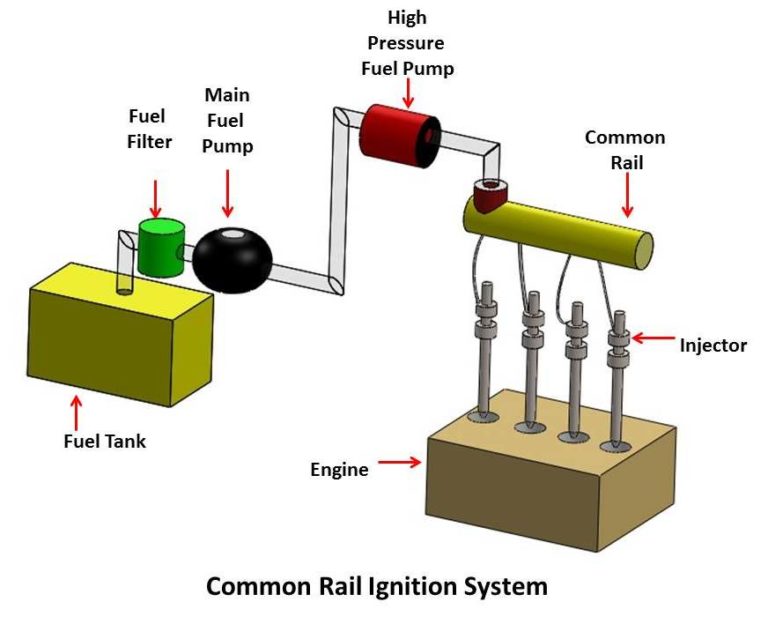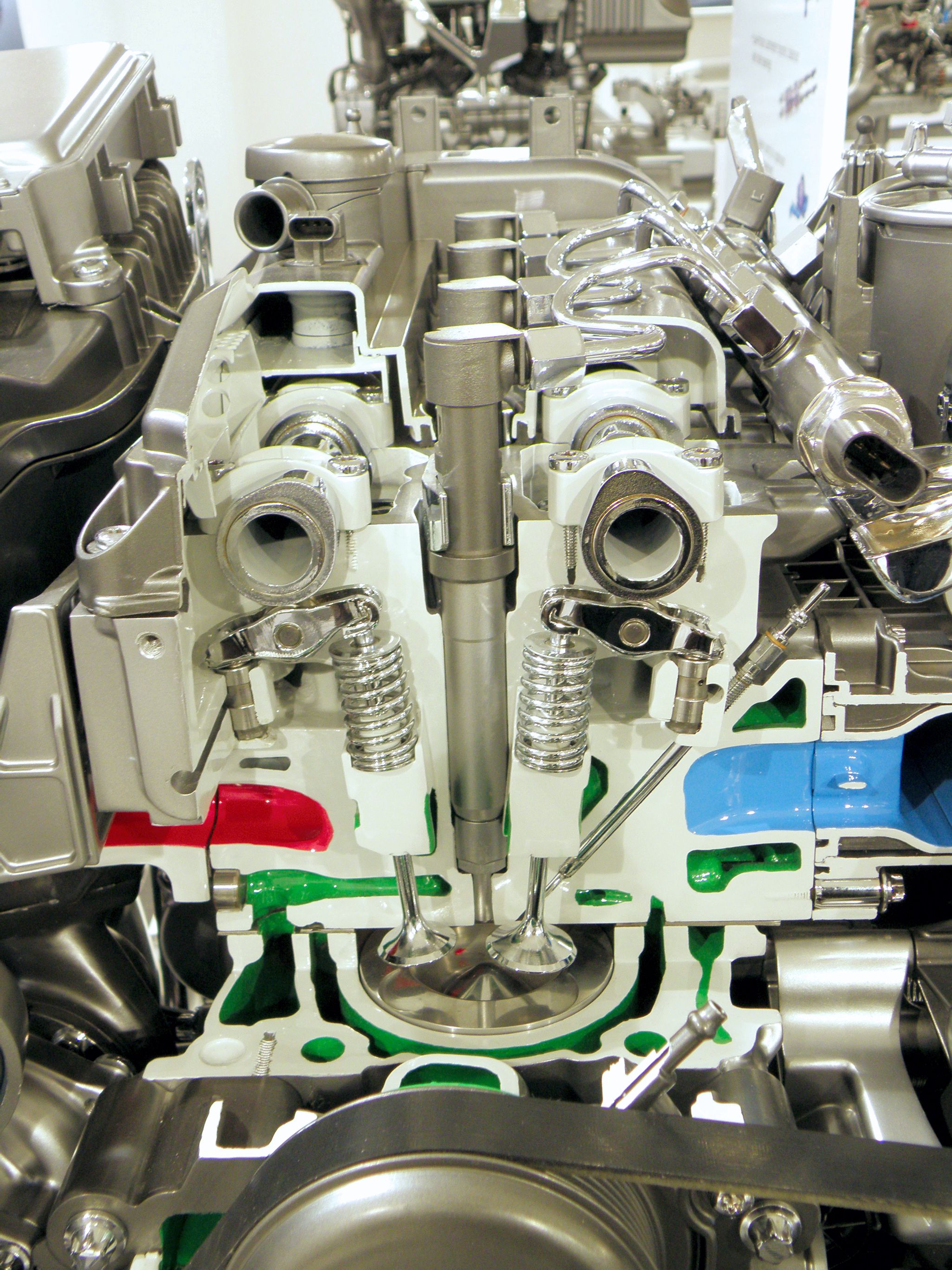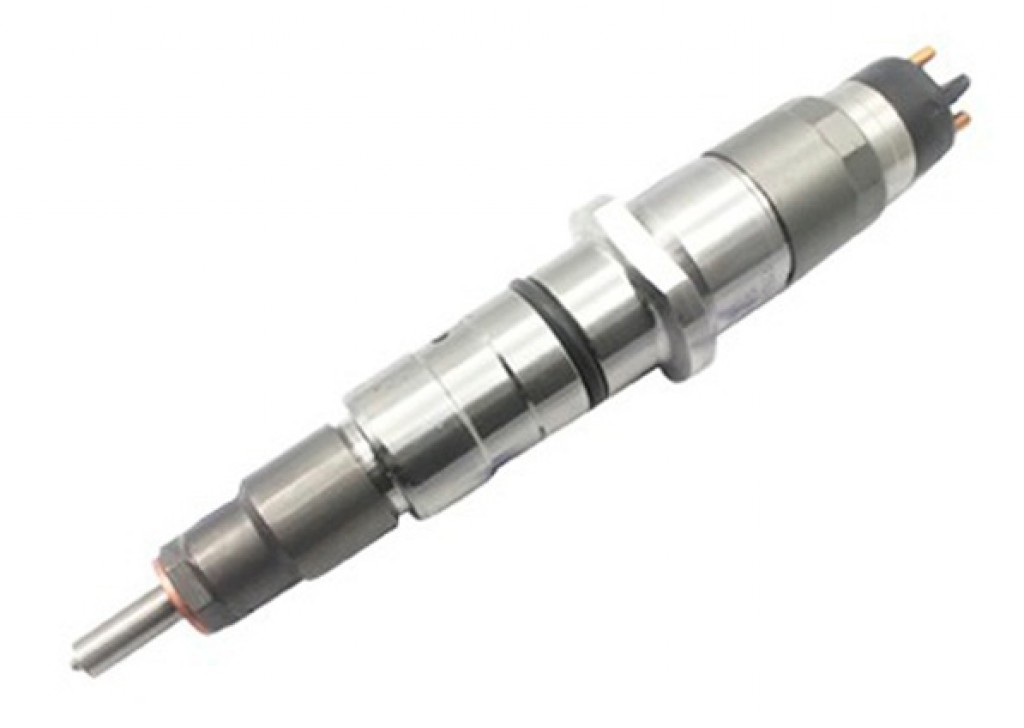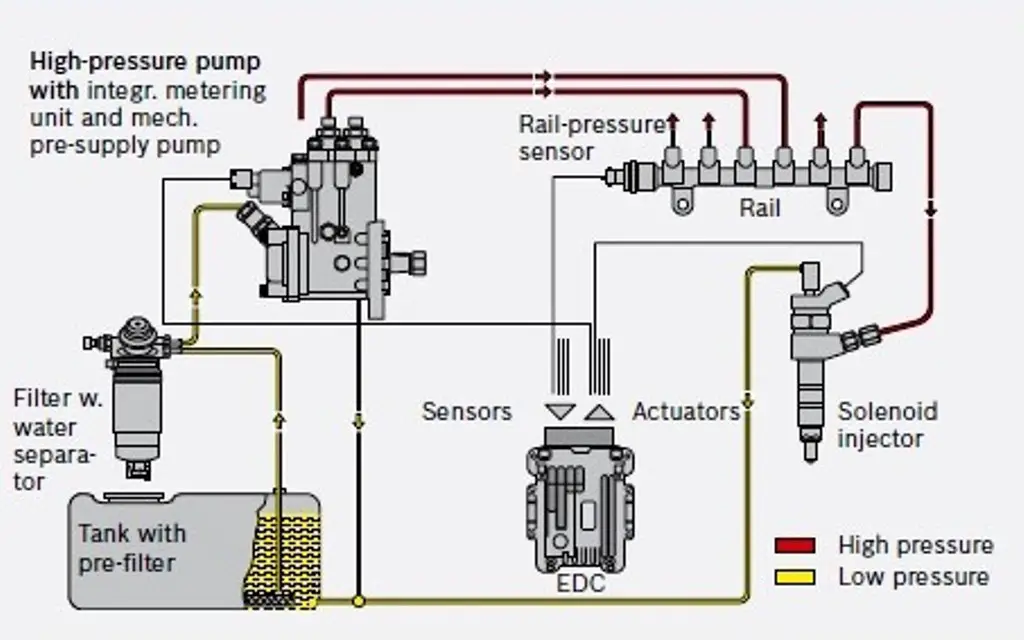
Common rail direct fuel injection
Common rail direct fuel injection is a direct fuel injection system built around a high- pressure (over 2,000 bar or 200 MPa or 29,000 psi) fuel rail feeding solenoid valves, as opposed to a low-pressure fuel pump feeding unit injectors (or pump nozzles).

Common rail direct injection functions, parts, working student lesson
Common rail systems using direct acting piezoelectric injectors offer the ability to modulate the injection rate through their ability to control injector needle lift velocity and maximum lift. However, most common rail systems use indirect acting (servo actuated) fuel injectors where the pressure is relatively constant throughout the injection event and needle opening rate and maximum lift is.

Diesel common rail direct injection (CRDI) benefits DIESELO
Table of Contents Components in Common Rail Direct Injection System - CRDI System: Working of CRDI System or Common Rail Direct Injection: Advantages of CRDI System: Disadvantages of CRDI System: Vehicles use CRDI system: Components in Common Rail Direct Injection System - CRDI System: Fuel tank Accumulator [Header] High-pressure relief valve

rail Direct Injection YouTube
A CRDi engine, short for "Common Rail Direct Injection" engine, is an advanced type of fuel injection system specifically designed for diesel engines. It has revolutionised the way diesel engines function, offering numerous advantages over traditional fuel injection systems.

What is CRDI Common Rail Direct Injection In Diesel Engine, Working, Advantage and
The common rail direct injection system is a modular design that has a common rail, electronic fuel pump, fuel tank, fuel filter, ECU, injectors and sensors. The fuel from the. fuel tank is fed into the filter and then to the fuel pump. A high-pressure pump pressurises the fuel. A pressure regulating valve is attached to the high-pressure pump.

Details about Diesel Marine Aeronautical engine Common Rail Direct Injection Details about
Diesel common rail direct injection (CRDI) and its benefits Common rail is a fuel injection system found in modern diesel engines. Common rail systems provide a level of flexibility which can be exploited for class leading emission control, power and fuel consumption.

L'injection directe common rail est un système d'injection directe de carburant pour moteurs
fuel-injection system (injectors). The rail here acts as a pressure accumulator. Areas of application The common-rail fuel-injection system for engines with diesel direct injection (Direct Injection, DI) is used in the following vehicles: Passenger cars ranging from high-economy 3-cylinder engines with displacements of

What is CRDI? Common Rail Direct Injection System Mech4study
A common rail direct injection (CRDI) system is a highly developed fuel injection system that has revolutionized diesel engine efficiency, performance, and emissions. It combines several components to ensure the smooth and effective burning of fuel in an engine while reducing emissions. The main components of a CRDI system include the common.

commenrail direct injection system Automobile technology, Diesel engine, Combustion chamber
Common Rail Direct Injection System. In CRDI system the fuel is distributed to the injector from a high pressure accumulator and through a rail and this rail is common to all the cylinder. Because of this, it is called as common rail injection system. The quantity of the fuel and atomization are controlled electronically using a programmable.

Common Rail Fuel Injection System Components
Common Rail Direct Injection is abbreviated as CRDI, whereas Turbocharged Direct Injection is abbreviated as TDI. These two engine technologies are ideal for passenger cars as well as trucks. Additionally, they can be used with your diesel engines. This article will discuss the distinction between CRDI and TDI.

How does Common Rail Direct Injection (CRDI) work? SkillLync YouTube
A CRDI abbreviation stands for Common Rail Direct Injection and is used by Hyundai Motor Group for their proprietary diesel engines with Common Rail direct fuel injection. CRDI engines are turbocharged power units installed on Hyundai and Kia vehicles.
 work 2_1653663265.jpg)
How Does Common Rail Direct Injection (CRDI) Work?
The modern version of the common rail injection system that is used in diesel engines was invented in 1990. This invention was built on nearly a century of advancements to the diesel engine. While not as influential as the invention of the diesel engine that it operates on, the common rail injection system has done a lot for diesel automobiles.

Import Export Guandong Diesel common rail direct injection 0 445 120…
Today's Common Rail injectors can perform multiple injections during a single combustion cycle and inject fuel into the engine at much higher pressures - up to 30,000 psi - through clearances as small as 1 micron.

Common Rail Direct Injection What is CRDi Technology? CarBikeTech
DI-D engines: operating characteristics. TDCi are turbocharged diesel engines with the Common Rail fuel injection system, installed on Ford cars. They were introduced in 2000. Some of these engines are manufactured in-house by the Ford Motor Company while others are produced by Groupe PSA (now Stellantis).
Automobile Technology CRDI Rail Direct Injection)
The main difference between common rail and direct injection diesel fuel systems lies in their method of fuel delivery. Conventional diesel fuel systems use a mechanical pump to deliver fuel to the engine, while common rail systems use a high-pressure pump to deliver fuel directly to the injectors.

Why Choosing Common Rail for a Gasoline Direct Injection (GDI)? BlueStars Diesel
Direct injection is a more traditional diesel fuel system that uses a mechanical pump to deliver fuel to the engine. In this system, the pump generates the pressure required for fuel injection, but its performance is limited compared to the high-pressure pump used in common rail systems.